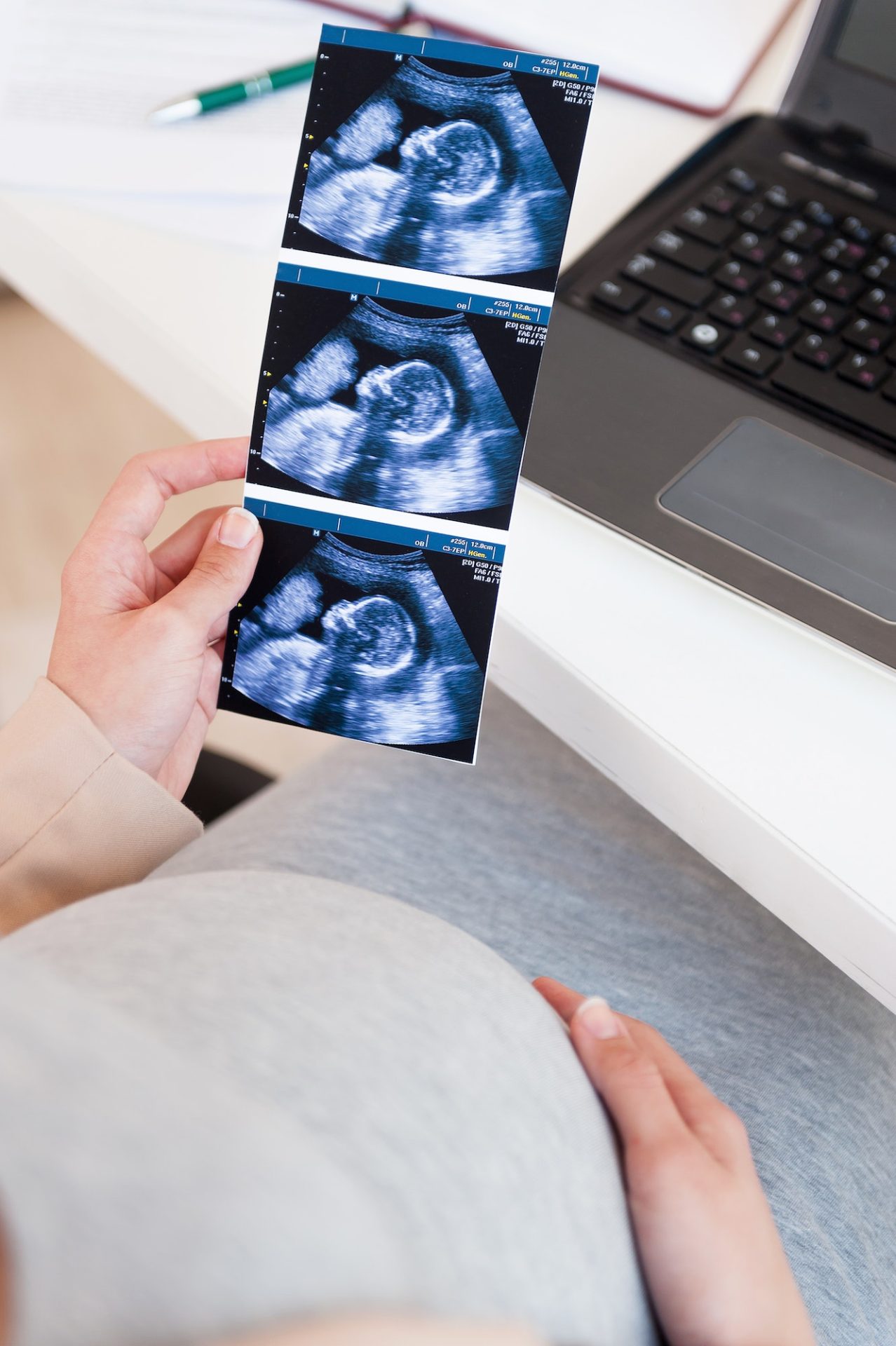Frequently Asked Questions
In Vitro Fertilization (IVF) Treatment
As you progress on the path to pregnancy, you may have hundreds of questions in your mind. We have compiled frequently asked questions for you.
Infertility is defined as the inability to achieve pregnancy after one year of regular, unprotected sexual intercourse (2-3 times a week). In couples where the woman is under 35 years of age, 85-90% will conceive within the first year.
The remaining 10-15% are considered infertile. However, it should also be kept in mind that spontaneous pregnancies may occur in this group. Fertility clinics work to eliminate any identified problems or to increase your chances if a problem is detected.
Treatment options include ovarian stimulation with medication, intrauterine insemination (IUI), and in vitro fertilization (IVF). Couples struggling to conceive first undergo a preliminary evaluation. Both the woman and the man are assessed separately, and the most suitable treatment method is determined for them. The range of recommendations is quite broad. What is important is offering a method that is tailored to the couple and is the most appropriate for their situation. For couples with blocked fallopian tubes or severe sperm problems, IVF may be their only option. However, in some couples, pregnancy can be achieved with just a stress-free waiting period. Apart from anatomical disorders or structural defects, age—especially the woman's age—is the most important determinant. Therefore, for older age groups, couples who have not achieved pregnancy after several rounds of egg monitoring or IUI are advised to consider IVF.
Institutions with a very good team, the highest possible technological equipment, and knowledge should be preferred. You need to place your full trust in the institution where you begin your treatment and feel confident leaving yourself in their care. Otherwise, every external comment will raise doubts in your mind. When you visit a center, you should ask everything you want to know repeatedly. Sharing is important for both you and us. Sometimes, a procedure that is technically the right choice for you can be psychologically disturbing. Therefore, proper communication can resolve such issues before they grow.
In our center, our goal is for patients to feel that every staff member they encounter is there to serve them. It should be remembered that if your mind and heart are at peace, that place is the right one for you.
Although infertility is defined as the inability to conceive after one year, if pregnancy has not been achieved within 6 months, a general check-up is recommended. If no issues are detected during the initial examination, young couples are advised to wait until the full year has passed. For those over 35 or with known risks, treatment should be considered. For individuals over 38, urgent action should be taken.
It is preferable to apply on the 2nd or 3rd day of your menstrual cycle. However, our doctors can also evaluate you on other days of your cycle. It is a good idea to bring all the tests related to infertility that you have done so far. Especially for patients coming from outside the city or abroad, contacting our clinic before arriving to get information helps us make better use of your time.
In good centers, under ideal conditions, a success rate of 50-60% can be achieved; however, the success rate in IVF depends on the characteristics of the couple. Factors such as age, anatomical, genetic, and structural features, stress, ovarian capacity, the level of the male factor, and even the ovulation status specific to that month all play a role. What is truly important is not the number given to you, but what can be done to increase your chances.


You can call our center for detailed information about IVF treatment costs.
- Education: First, you will be provided with detailed education about the procedures to be performed. You will be informed about the treatment plan, medication use, and the procedures, and your consent will be obtained.
- Ovarian Stimulation: Based on your examination and test results, the treatment plan determined for you will begin. During this process, the development of the eggs will be monitored with vaginal ultrasounds and hormone measurements at 2-4 day intervals. This phase typically lasts 7-10 days.
- Egg Collection: When the eggs are ready, a trigger injection is given, and 36 hours after the injection, the eggs are collected. The egg retrieval process is done with thin needles under vaginal ultrasound guidance. It is not a very painful procedure; it can be done with local anesthesia and sedatives, but to avoid stress, this procedure is performed under general anesthesia in our clinic, and our patients feel nothing. It is recommended to rest for one day.
- Sperm Collection: On the same day as the egg collection, sperm is obtained either naturally or, if not possible, through surgical procedures.
- Laboratory Procedures: One day after egg and sperm collection, you will be informed about how many of your eggs were fertilized. In the following days, the development of the embryos will be monitored, and you will be informed about the quality and number of embryos.
- Embryo Transfer: The day when your embryos have the highest chances is determined jointly by the clinical team and the embryology laboratory, and on that day, your embryos are transferred. This occurs between the 2nd and 5th day after egg retrieval. The transfer is not a painful procedure.
- Post-Transfer: After resting for a few hours in our clinic, you can leave and return to your daily life, avoiding heavy physical work and stress. The treatment plan you will follow until the pregnancy test is done will be explained to you.
The medication application will be explained to you in detail at our clinic, and the procedure is simple enough for you or your partner to do. If requested, our team will assist you with this every day.
During IVF treatment, you can easily continue your daily life, except for sexual intercourse. If you have a stressful lifestyle, taking some time off and being in vacation mode can help reduce stress and may increase your chances.
- The highest risk is the risk of multiple pregnancies, which can be eliminated by controlling the number of embryos transferred.
- Ovarian hyperstimulation (Ovarian hyperstimulation syndrome) occurs in 1-2% of treatments and is a condition that can be managed with appropriate precautions.
- Egg retrieval is a surgical procedure, and, like any intervention, there are risks such as bleeding and infection.
- If problems arise during treatment that may decrease the chances of success, the cycle may be canceled. This decision is made to increase your chances in the next attempt.
Medications used in IVF treatment, like any other medications, may have temporary side effects (such as bruising, redness, hot flashes, muscle aches, etc. at the injection site). There is no proven evidence of any negative effects related to weight gain, hormonal imbalances, or early menopause. Numerous studies have been conducted regarding cancer, but there is no data indicating a direct effect of the medications. The question of whether factors preventing pregnancy or not having given birth can trigger cancer is still being investigated.
12 days after the embryo transfer, a blood beta-hCG test is performed to check for pregnancy.
Although there is no scientifically proven conclusive information on this matter, a two-week period of abstaining from intercourse is recommended due to reasons such as ovarian torsion (twisting) caused by stimulation, infection, or the potential for severe abdominal pain.

Once heartbeats are detected at the appropriate time, the risk of miscarriage does not differ between normal pregnancies and IVF pregnancies.
In large series worldwide and in our experiences to date, there is no increased risk of anomalies or health issues compared to normal pregnancies. Additionally, no differences have been observed in their development or follow-up during later life. However, multiple pregnancies, which are more common compared to the general population, can bring certain issues such as preterm birth and low birth weight.
Our advice is to contact us after at least two menstrual cycles; we will perform an examination, hormone analysis, and check via ultrasound to ensure that your ovaries have returned to their previous size. Based on these results, we will plan the new treatment.
If we have high-quality embryos after the transfer, the option to freeze them will be presented for your approval. If you agree, the frozen embryos can be stored at our center for 5 years, as per regulations.
As long as there are sufficient and high-quality eggs and sperm for the treatment, IVF can be performed as many times as desired.
It is known that the chances of taking home a live baby decrease after the age of 45. Environmental and genetic factors play a significant role in this. In our clinic, we provide services to patients up to the age of 45 who, based on their examination and test results, are considered to have a chance of success with personalized treatment options.
According to regulations in Turkey, the couple undergoing IVF treatment must have a home and provide documentation of it.
According to the laws in Turkey, such a choice is not allowed.
Yes, at our clinic, we always want to see an HSG before the procedure.
In these cases, our doctors make decisions based on the benefit/risk balance, tailored to your specific situation. Our general principle is to avoid surgery whenever possible, but it is recommended if it will benefit you. Additionally, in cases of repeated failures, surgical methods may also be considered as an alternative.
Very low or very high body weight can negatively affect the success of the treatment. In such cases, our team will refer you to a metabolism specialist or a dietitian.
There is no specific diet, but you should try to follow a natural, healthy, and balanced diet. You should drink plenty of water, aiming for 2.5-3 liters a day. Fruits and vegetables, when in season, are the best antioxidants and contribute to the quality of your sperm and eggs, just like all your body cells. Alcohol and smoking should be avoided at all times as they reduce the chances of success.
In recent years, there have been rapid changes and developments in IVF technology. With the advancement of international relations and communication opportunities, accessing this data through global scientific conferences is quite easy. It is not difficult to incorporate the technology from leading centers worldwide into our local centers. However, it should be noted that even the latest technological advancements only become meaningful when combined with a strong scientific foundation. We can proudly say that our entire team at our clinic is confident in this regard.
- Personalized evaluation for the couple
- Treatment of hormonal imbalances and ovulation disorders
- Surgical procedures that increase the chances of pregnancy (Hysteroscopic and laparoscopic surgeries)
- Fertility preservation counseling and procedures
- Detection and treatment of sperm anomalies and sperm DNA damage
- Urology and andrology counseling
- Intrauterine insemination (IUI)
- Supportive treatments that increase the chances of pregnancy
- Customized medication selection and dosage adjustment for women
- Stress and anxiety reduction techniques
- Microsurgical techniques such as MicroTESE, PESA, and TESA
- Advanced techniques in sperm selection, egg and embryo laser treatments (Zona drilling, assisted hatching)
- Custom embryo incubators for the couple's embryos
- Support for egg and embryo development
- Procedures to enhance endometrial receptivity (Injury/nada technique)
- Blastocyst transfer
- Monitoring egg development and embryo transfer with 3D and 4D ultrasounds
- Embryo and blastocyst biopsies
- Pre-pregnancy genetic screening (PGT-A, PGT-S, CGH)
- Sperm, egg, and embryo freezing
We are here for your health
Small Steps, Changing Lives
We are here with our team of expert doctors to help turn your dreams into reality.

 EN
EN TR
TR
